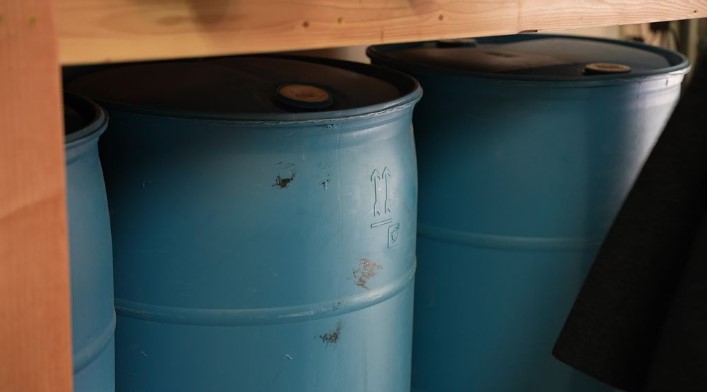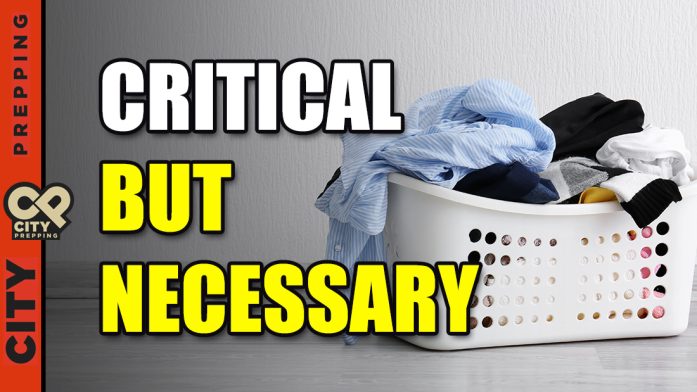The Developing World War No One is Discussing
“The clouds that parted following the end of the Cold War are gathering once more…Today, humanity is just one misunderstanding, one miscalculation away from nuclear annihilation” – António Guterres, United Nations Secretary-General.
There is an ongoing upheaval to the current world order as we know it. The rise and unification of nations to contest the global power that the West holds is leading to events that, when fully understood, show a deeper issue that will soon change our life as we know it. While the United States enjoys the many benefits that come from having our currency as the reserve currency of the world, there are nations that are one by one joining an economic alliance that will soon be able to work around the systems that have benefited the United States and its allies for decades. This will lead to an inevitable contesting of the world’s power structures culminating in a confrontation that will have profound impacts. In this blog, we will look at BRICS, the expanding economic alliance that began with Brazil, Russia, India, China, and South Africa. It is now seeking to expand its membership, destabilize the dollar and euro, and completely alter long-established boundaries and trade agreements. It has recently made great strides to this end and is implementing a game plan to completely replace the US dollar as the world’s reserve currency by 2025. Though we had mentioned BRICS before and followed it closely for quite some time, it is swiftly becoming one of the greatest threats to the world order and global economy, and good or bad, how we have functioned and maintained relative peace in the world. This is a massive threat you have to know about because it has the potential to change the entire world forever forward.
A BRIEF HISTORY OF BRIC(S)
 The acronym BRIC was first established in 2001 by Goldman Sachs economist Jim O’Neill. It was an investment strategy in Brazil, Russia, India, and China that was predicted to dominate the global economy around the year 2050. South Africa was added in 2010, and BRICS became BRICS. Goldman Sachs eventually abandoned it as an inclusive investment strategy.
The acronym BRIC was first established in 2001 by Goldman Sachs economist Jim O’Neill. It was an investment strategy in Brazil, Russia, India, and China that was predicted to dominate the global economy around the year 2050. South Africa was added in 2010, and BRICS became BRICS. Goldman Sachs eventually abandoned it as an inclusive investment strategy.
These five countries are part of five significant trade agreements: the South American Free Trade Area with 11 member nations, the Economic Union Free Trade Area with 8, the South Asian Association for Regional Cooperation with 15, and the African Continental Free Trade Agreement with 34 member nations. Together, the four original BRIC countries comprise more than 2.8 billion people or 40 percent of the world’s population, cover more than a quarter of the world’s land area over three continents, and account for more than 25 percent of global GDP. It’s a tectonic-shifting group that is massively influential, and it is only getting bigger.
MASSIVE EXPANSION OF THE AXIS
 Egypt ratified its participation last week. Argentina, Algeria, the Islamic Republic of Iran, Indonesia, Turkey, and Saudi Arabia are all leaning towards or taking steps toward joining the alliance against the dollar. Mexico, South Korea, Indonesia, Bangladesh, Nigeria, Pakistan, Philippines, and Vietnam are all leaning towards membership. The Bank of Indonesia called upon importers and exporters to stop payments in the US Dollar. Russia is bolstering its transactions outside of the US dollar. China is facilitating billions more in transactions in Yuan. The New Development Bank (NDB) in Shanghai in 2014, with $50 billion of start-up capital, was another milestone. The NDB replaces the IMF and World Bank. Their Interbank Cooperation Mechanism would seek to replace SWIFT. The BRICS Contingent Reserve Arrangement (CRA) balances these transitions for member nations by facilitating a liquidity mechanism for members facing short-term balance of payments squeezes or currency instability as they transition. Any way you cut it, BRICS is the formal rival to the G7 nations. As the BRICS grows, the dollar and Euro will proportionally drop in strength.
Egypt ratified its participation last week. Argentina, Algeria, the Islamic Republic of Iran, Indonesia, Turkey, and Saudi Arabia are all leaning towards or taking steps toward joining the alliance against the dollar. Mexico, South Korea, Indonesia, Bangladesh, Nigeria, Pakistan, Philippines, and Vietnam are all leaning towards membership. The Bank of Indonesia called upon importers and exporters to stop payments in the US Dollar. Russia is bolstering its transactions outside of the US dollar. China is facilitating billions more in transactions in Yuan. The New Development Bank (NDB) in Shanghai in 2014, with $50 billion of start-up capital, was another milestone. The NDB replaces the IMF and World Bank. Their Interbank Cooperation Mechanism would seek to replace SWIFT. The BRICS Contingent Reserve Arrangement (CRA) balances these transitions for member nations by facilitating a liquidity mechanism for members facing short-term balance of payments squeezes or currency instability as they transition. Any way you cut it, BRICS is the formal rival to the G7 nations. As the BRICS grows, the dollar and Euro will proportionally drop in strength.
Here’s why this spells trouble for the status quo of the US dollar as the world’s reserve currency that everyone has traditionally traded with since 1944. BRICS nations are developing their own transactional system outside the US-controlled SWIFT system and encourage transactions in local currencies over US dollars. Clear battle lines are being drawn. Coupled with global inflation and recession, we are very likely on the cusp of an economic world war. Without the SWIFT system and the economic sanctions the G7 can agree to impose on rogue nations, there is no mechanism to deter countries from human rights violations or even invading neighboring countries. Sanctions become meaningless.
As the US-led postwar system crumbles, a New World Order is emerging. Anti-western, communist, and authoritarian countries like Russia, the Islamic Republic of Iran, and China are basically huddling together to counter western influence. Their game plan would entirely replace the International Monetary Fund, World Bank, World Trade Organization, SWIFT, and the dollar all by 2025. This axis of countries is a behemoth hostile to the US, Europe, and the US dollar. This unprecedented rise of an authoritarian axis, rivaling the democratic order led by the US, opens up China’s ability to make territorial gains, Russia’s ability to fund the invasion of more countries, the Islamic Republic’s ability to ignore any nuclear deals, and the list goes on. Any despot leader could commit any number of atrocities, from ethnic cleansing to invasions of sovereign nations, with the confidence that the other BRICS members will simply turn a blind eye to their actions.
Each country has its own motivations for joining, but there is an underlying tacit agreement not to influence other member nations’ actions, no matter how horrific. The Islamic Republic of Iran wants to join to develop outside of sanctions and be free to build its nuclear arsenal. China is motivated to expand its market share away from the US. Russia wants to be free to pursue its efforts to reunite the former Soviet-bloc nations by force. India hopes to amplify its voice in global governance and to expand the choices of international partners. Brazil’s left-leaning government hopes to emphasize South-South diplomacy to please their domestic political supporters. South Africa, having already suffered from sanctions in the past, wants to court China’s support in Africa’s growth.
MULTI-POLAR FORCES
 If you live in one of the countries not part of this axis, it will have some profound effects over the next several years. First, natural resources, economic resources, and trade will all flow away from your economy and into the feeding of this axis of nations. Imagine the impact of Brazil’s $26 billion in iron ore or $20 billion in petroleum no longer going to your country but exclusively to China, Russia, and Indonesia. Imagine India’s exports of $61 billion in oil, $13.6 billion in machinery, $11.7 billion in pharmaceuticals, or $12 billion in bio-chemicals similarly flowing away from your country to feed this growing aligned axis. We have already seen what dramatic shifts in the flow of natural gas and cereal grain can do to the world.
If you live in one of the countries not part of this axis, it will have some profound effects over the next several years. First, natural resources, economic resources, and trade will all flow away from your economy and into the feeding of this axis of nations. Imagine the impact of Brazil’s $26 billion in iron ore or $20 billion in petroleum no longer going to your country but exclusively to China, Russia, and Indonesia. Imagine India’s exports of $61 billion in oil, $13.6 billion in machinery, $11.7 billion in pharmaceuticals, or $12 billion in bio-chemicals similarly flowing away from your country to feed this growing aligned axis. We have already seen what dramatic shifts in the flow of natural gas and cereal grain can do to the world.
If your country uses the dollar as its reserve currency, as most do, buckle your economic seatbelts because your economy is about to take a nose dive. A reserve currency is a currency held by central banks in significant quantities. It is used to conduct international trade and financial transactions, eliminating the costs of settling transactions involving different currencies. Historically, shifts from one dominant international currency to another occur over many years, as occurred when the dollar took the dominant role from the British pound sterling. This significant and sudden shift off the greenback will result in central banks shedding what they hold, and the flooded market will exponentially drop the dollar’s value. Suddenly, everything you may want to purchase, from a stick of gum to a tractor, will cost more with your dollar buying less. That will drive the cost of everything higher and make a global recession and inflation look like the peaceful, calm moments before the storm strikes of a worldwide great depression, at least a western storm.
As BRICS expands and implements its agenda, a multi-polar system is established that cleaves the world into two separate pieces. One is the traditional methods by which the world has operated with pro-democracy and anti-authoritarian ideals. The other is an authoritarian group of nations that shares anti-western ideals and has traditionally had a dismal track record with human rights and a history of territorial expansionism. Some would cheer this and praise the dismantling of the old systems in favor of newer systems. That argument may have some merits, but the details and nitty-gritty of that exploration could quickly fill volumes and is far too complex of a discussion for this short blog. More concerning to us is the instability created by these two competing, economically warring polarities. It will result in economic upheaval, global flare-ups of economic unrest, and possibly an outright global world war. With the conflict in Ukraine and potential conflicts in Taiwan and the South Pacific, we could already be nearly there.
WHAT THIS MEANS TO YOU
 We know this is a heady and complex subject to tackle, especially in such a short blog, but you must understand how this is already impacting you and the world and how rapidly and dramatically it will escalate from here. If you ever had a long-term threat to your food, energy, water, finances, resources, and social stability, this is it. If you needed a reason to really focus on your preps and bolster your self-sufficiency, this would be it. This is only going to intensify over the next several months and years. Barring the collapse of China or Russia, their programs to disrupt the western status quo are on cruise control at this point.
We know this is a heady and complex subject to tackle, especially in such a short blog, but you must understand how this is already impacting you and the world and how rapidly and dramatically it will escalate from here. If you ever had a long-term threat to your food, energy, water, finances, resources, and social stability, this is it. If you needed a reason to really focus on your preps and bolster your self-sufficiency, this would be it. This is only going to intensify over the next several months and years. Barring the collapse of China or Russia, their programs to disrupt the western status quo are on cruise control at this point.
Hundreds of new trade agreements will result in a complete rerouting of the existing supply chains. Those agreements will be transacted outside the US dollar, and tectonic shifts in economies will occur. The best thing you can do right now is to brace for impact. Bolster your food resources. Supplement your food resources by producing some of your own food or finding local sources. Expect that your grid and infrastructure components could eventually fail until the massive machinery and parts needed to maintain them are sourced within your own country. Financially, as these polar extremes pull apart, there’s a possibility precious metals will rise as the only valid means of cross-polar value. We try to be so cautious about making financial recommendations on this channel, and we have no sponsorship for precious metals. We say that to make it clear we have no conflict of interest in pointing this out, but it’s something you may want to research a bit further.
We try to err on the side of caution with this channel to not bring up issues like this with the intent to scare our audience, but we would be remiss if we didn’t inform you of the seriousness of the BRICS axis and why you should be prepping to endure this economic world war we are looking in the eye. In this next year, we expect we will be unpacking this out further and witnessing and reporting on how it is impacting supply chains and economies around the world. Until recently, BRICS was more of a hypothetical threat, but with the recent expansion, the war in Ukraine, and the strengthening China-Russian alliance, this threat is easily one of the greatest threats to global stability we have witnessed in our lifetimes. Prepare accordingly.
We’ll post some links to some of the resources we studied in preparation for this blog if you’d like more information.
As always, stay safe out there.
LINKS:
https://www.aei.org/op-eds/chinas-olympics-are-at-the-center-of-a-new-axis-of-evil/
http://globalsherpa.org/bric-countries-brics/
https://brics2021.gov.in/about-brics









